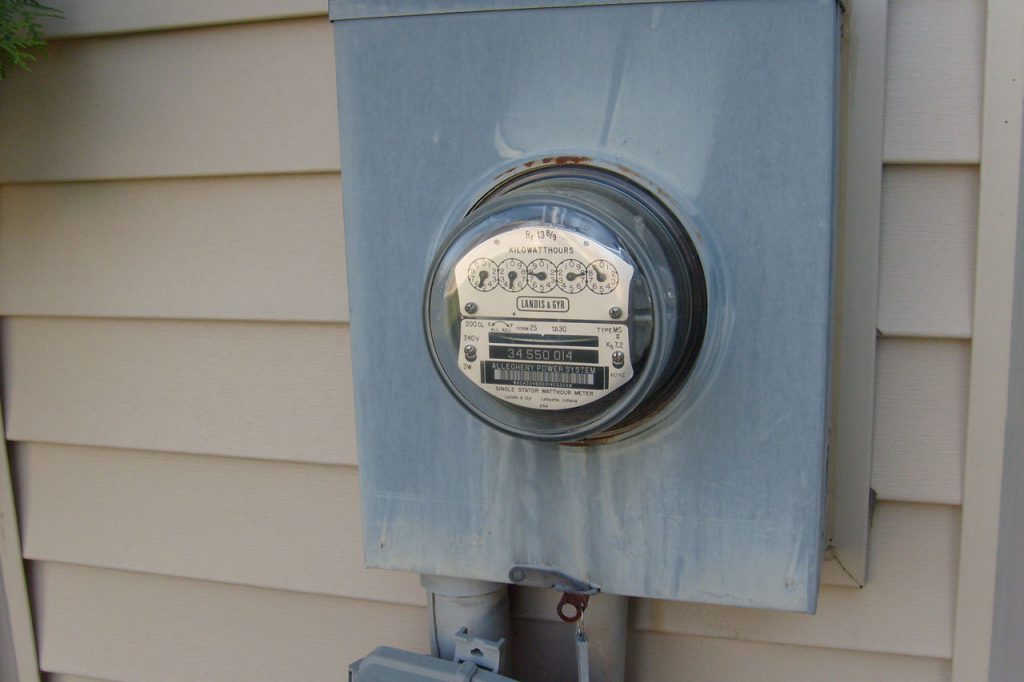Utility Disconnection Moratorium Ending
Starting July 1st, utilities can charge late fees and disconnect services.
State regulators announced this week that they will lift a temporary moratorium that prevented utilities from disconnecting water, electricity and heat for customers who couldn’t afford to pay their utility bills during the COVID-19 crisis. Utilities can once again issue disconnection notices starting July 15 and the moratorium ends on July 25.
The Public Service Commission of Wisconsin issued an order on March 24 barring the disconnections and collection of late fees.
PSC Commissioner Tyler Huebner said Friday that the commission is trying to strike a balance with consumer protection and costs to utilities.
“The utilities can offer deferred payment agreements, which would allow (customers) to set up a payment plan to repay those balances,” said Huebner.
Data submitted by the state’s 26 utilities shows that on average, just under 13,000 disconnections are made from April 15 through May 15 each year. The commission said most utilities did not disconnect service during the same timeframe this year except in instances of meter tampering or dangerous conditions like fires and gas leaks.
We Energies, the state’s largest electric and natural gas utility, reported that its amount of unpaid bills has grown by $16.8 million as of the most recent billing cycle for residential and nonresidential customers compared to the last three-year average.
Wisconsin Public Service saw its past-due balance grow by $3.4 million for residential and nonresidential customers. Madison Gas & Electric said the balance of its unpaid bills was 11 percent higher for residential customers and 120 percent higher for nonresidential users.
“If the customer cannot get current on (their bill) and the utilities to take a write-off, then those costs gets passed on to all utility customers,” said Heinrich.
Heinrich noted utilities now have a month to work with customers to prevent any issues with service. Brendan Conway, spokesperson for We Energies and Wisconsin Public Service, agreed.
“We have payment plans. We have budget billing. We have ways that we can help make it easier for people,” said Conway. “Especially at an uncertain time, what we want more than anything is for people to have some certainty and have some options.”
Tom Content, executive director of the Citizens Utility Board, said it’s a challenging situation for both utilities and their customers.
“Given the severity of the pandemic and the economic impact, we think it’s incumbent on utilities to do what they can to accommodate folks as far as being flexible,” said Content.
CUB and the commission urged utilities to provide greater flexibility to customers facing economic challenges due to COVID-19. People who are sick with COVID-19 or experiencing medical conditions can also seek a temporary waiver from their utility.
Customers are advised to contact their utility provider if they’re behind on their bills to set up a payment plan to avoid disconnection. If customers receive a disconnection notice, they can apply online for assistance with their energy bills from the Wisconsin Home Energy Assistance Program.
People can also file a complaint with the commission if agreements can’t be reached on the agency’s website.
Below is the contact information for the state’s largest utilities:
- Alliant Energy: 1-800-255-4268
- Madison Gas & Electric: 1-800-245-1125
- Superior Water, Light & Power: 1-800-227-7957
- We Energies: 1-800-842-4565
- Wisconsin Public Service Corporation: 1-800-450-7260
- Xcel Energy: 1-800-895-4999
State Regulators Lifting Pandemic Moratorium On Utility Disconnections, Late Fees was originally published by Wisconsin Public Radio.
More about the Coronavirus Pandemic
- Governors Tony Evers, JB Pritzker, Tim Walz, and Gretchen Whitmer Issue a Joint Statement Concerning Reports that Donald Trump Gave Russian Dictator Putin American COVID-19 Supplies - Gov. Tony Evers - Oct 11th, 2024
- MHD Release: Milwaukee Health Department Launches COVID-19 Wastewater Testing Dashboard - City of Milwaukee Health Department - Jan 23rd, 2024
- Milwaukee County Announces New Policies Related to COVID-19 Pandemic - David Crowley - May 9th, 2023
- DHS Details End of Emergency COVID-19 Response - Wisconsin Department of Health Services - Apr 26th, 2023
- Milwaukee Health Department Announces Upcoming Changes to COVID-19 Services - City of Milwaukee Health Department - Mar 17th, 2023
- Fitzgerald Applauds Passage of COVID-19 Origin Act - U.S. Rep. Scott Fitzgerald - Mar 10th, 2023
- DHS Expands Free COVID-19 Testing Program - Wisconsin Department of Health Services - Feb 10th, 2023
- MKE County: COVID-19 Hospitalizations Rising - Graham Kilmer - Jan 16th, 2023
- Not Enough Getting Bivalent Booster Shots, State Health Officials Warn - Gaby Vinick - Dec 26th, 2022
- Nearly All Wisconsinites Age 6 Months and Older Now Eligible for Updated COVID-19 Vaccine - Wisconsin Department of Health Services - Dec 15th, 2022
Read more about Coronavirus Pandemic here























I’ve often wondered about these moratoriums, both during the Corona virus and prior years. How many people simply don’t pay the bills because they can’t get disconnected then complain when push comes to shove from the utilities and the landlords?